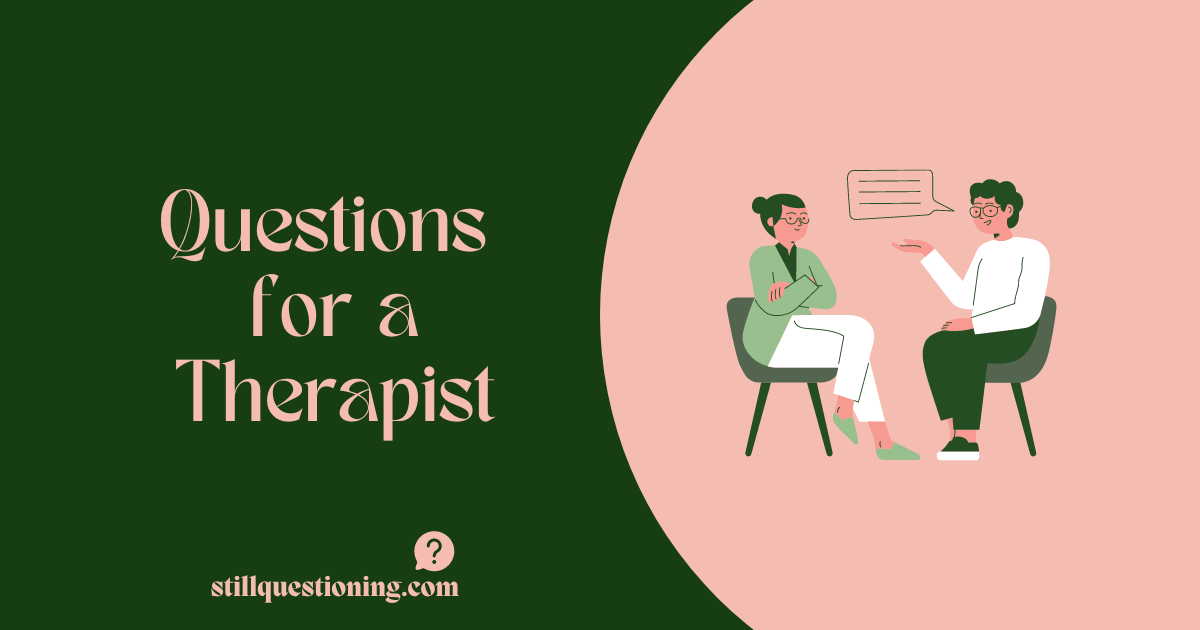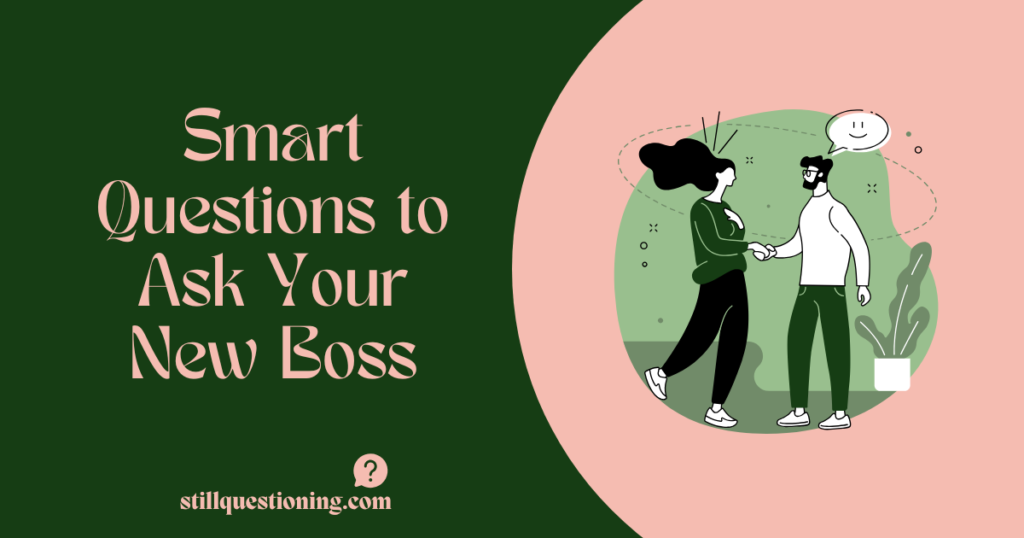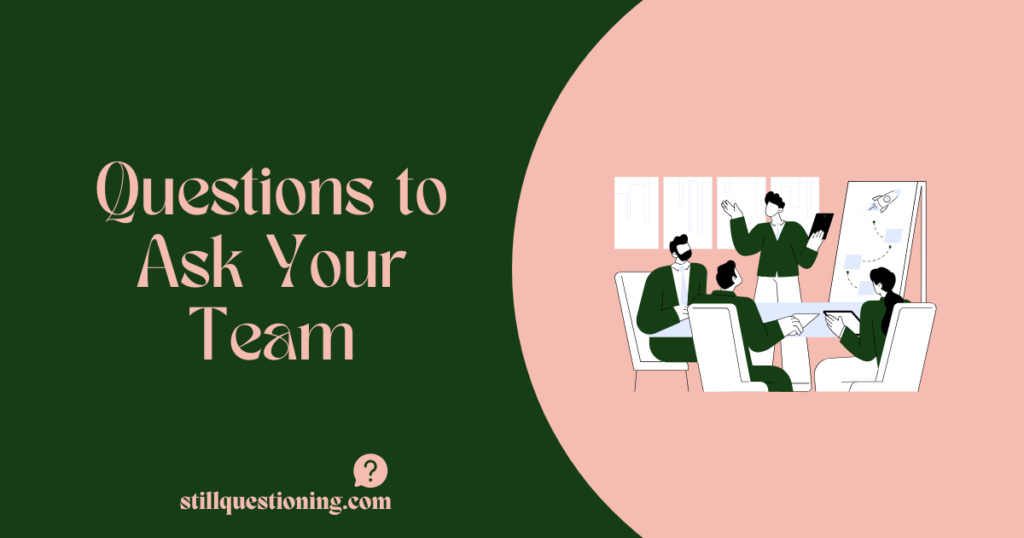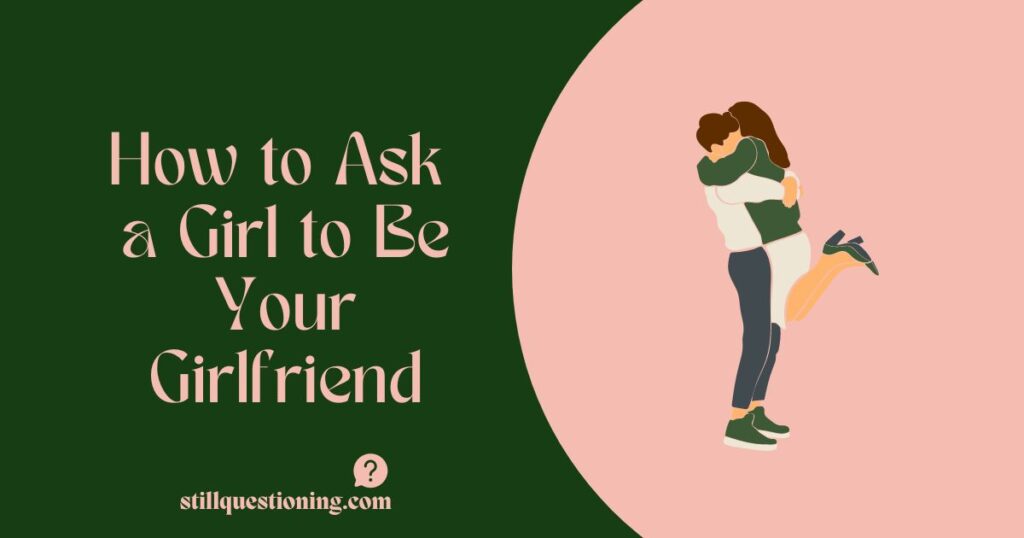Therapy is a wonderful time when you sit on a couch, stare at some diplomas on the wall, and try to articulate your feelings without using the word “fine” fifteen times. This is your hour! It’s like a spa day for your emotions. And just like you wouldn’t go to a spa without knowing what kind of massage you want, you shouldn’t go to therapy without some handy questions. So, let’s discover questions for a therapist that you should ask and figure out how to get the most bang for your emotional buck!

Table of Contents
Why Questions for a Therapist Matter
First things first, let’s clear up a misconception. Therapy isn’t like going to see a psychic. Your therapist doesn’t have a crystal ball (well, usually). They’re there to guide you, not read your mind. And while they’re great at asking questions, the real magic happens when you come prepared with your own.
- Direction: They help guide the session.
- Clarity: They ensure you and your therapist are on the same page.
- Depth: They encourage a deeper exploration of your thoughts and feelings.
Now, let’s get into the nitty-gritty.
Part 1: The Icebreakers – Questions for a Therapist
Starting therapy can feel like a first date, minus the fancy dinner. You want to get to know your therapist and feel comfortable. So, here are some questions to break the ice:
- “What’s your approach to therapy?”
- Like chefs, every therapist has their special recipe. Know what you’re eating!
- “Have you dealt with issues like mine before?”
- It’s like asking a pilot if they’ve flown this route before. Comforting, right?
- “What do you expect from me as a client?”
- It’s a two-way street, and you’re not just there to nod and look introspective.

Part 2: Diving Deeper – Questions for a Therapist
Once you’re past the first-date vibes, it’s time to dig deeper.
Self-Discovery
- “What patterns do you notice in my thinking?”
- Sometimes you’re too close to your own brain to see the big picture.
- “How can I handle my emotions better?”
- Because sometimes, screaming into a pillow doesn’t cut it.
Coping Strategies
- “Can you suggest ways to deal with my anxiety/stress?”
- Tailored coping strategies are like custom-tailored suits; they fit you perfectly.
- “How can I improve my relationships?”
- Because, let’s face it, humans are complicated.
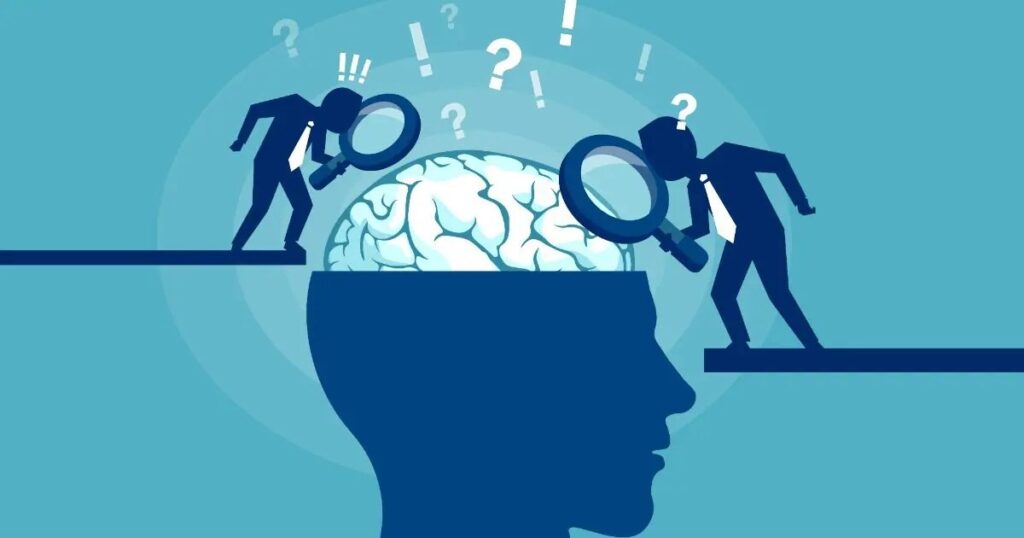
Part 3: The Nuts and Bolts – Questions for a Therapist
This is the practical stuff. Like, how not to forget your next appointment.
Logistics
- “How often should I come to therapy?”
- It’s not like a gym membership; frequency matters.
- “What can I do between sessions to keep progressing?”
- Think of it as homework, but the kind you actually want to do.
Goal Setting
- “How do we set and evaluate therapy goals?”
- It’s like setting a GPS destination. You need to know where you’re going.
- “What are some realistic expectations for my therapy journey?”
- Because expecting to solve all life’s problems in one session is like expecting to win the lottery the first time you play.
Related Articles:
- Questioning Techniques
- Open and Closed Questions
- Questioning in Coaching
- Questions for Higher-Order Thinking
- Psychological Questions
- What Are Probing Questions?
Part 4: The Check-in – Questions for a Therapist
Regularly checking in with your therapist (and yourself) is crucial.
Progress Evaluation
- “What progress have I made so far?”
- It’s important to celebrate the small victories!
- “What areas do I still need to work on?”
- No one’s perfect. Identifying growth areas is key.
Feedback Loop
- “Is there a different approach we can try?”
- If plan A isn’t working, there’s always a plan B.
- “How can I be a better client?”
- Yes, there’s such a thing as being a good therapy client!
FAQs
How do I know if I’m asking the right questions in therapy?
The ‘right’ questions in therapy are ones that help you understand yourself better and move towards your goals. If a question is sparking insight or leading to a meaningful conversation, it’s a good one. Remember, there’s no such thing as a silly question in therapy – it’s all about exploration and growth.
Can I ask personal questions about my therapist’s life?
It’s natural to be curious about your therapist, but therapy is primarily focused on you. Some therapists might share personal anecdotes if they feel it’s therapeutically beneficial, but don’t be offended if they prefer to keep the session focused on your experiences and feelings.
Is it normal to feel worse after a therapy session?
Absolutely. Therapy can sometimes stir up emotions and memories that are uncomfortable. Think of it like cleaning a wound – it might hurt initially, but it’s part of the healing process. If you’re consistently feeling worse, though, it’s important to bring this up with your therapist.
What should I do if I don’t feel like I’m clicking with my therapist?
It’s important to have a therapist you feel comfortable with. If you don’t feel a connection, it’s perfectly okay to discuss this with them or consider finding a new therapist. Therapy is a personal experience, and the right fit is crucial for effective progress.
How often should I go to therapy?
This varies depending on your individual needs and goals. Some people benefit from weekly sessions, while others might meet with their therapist less frequently. It’s best to discuss this with your therapist, who can provide guidance based on your specific situation.
Can I bring notes or a list of topics to my therapy sessions?
Absolutely! Bringing notes or a list of topics can be very helpful. It ensures that you cover what you want to discuss and helps keep the session focused and productive. Plus, it shows your therapist that you’re engaged and proactive about your therapy journey.
What if I can’t think of any questions to ask my therapist?
That’s okay too! Sometimes, you might not have specific questions, and that’s a part of the process. Your therapist can help guide the conversation and may ask questions to help you explore your thoughts and feelings. Therapy is flexible, and it’s all about what works best for you.
Conclusion:
Remember, therapy is a journey, not a sprint. It’s okay to ask questions, get lost a bit, and find your way again. And while your therapist is the guide, you’re the one doing the walking. So, lace up those emotional hiking boots and get ready for an adventure. It might not always be easy, but it’s definitely worth it.
Oh, and one last thing: don’t forget to ask your therapist how they’re doing once in a while. They’re human, too, and a little empathy goes a long way. Plus, it’s a nice break from talking about your childhood.
Remember, every great conversation starts with a question. So, still questioning and staying curious!

